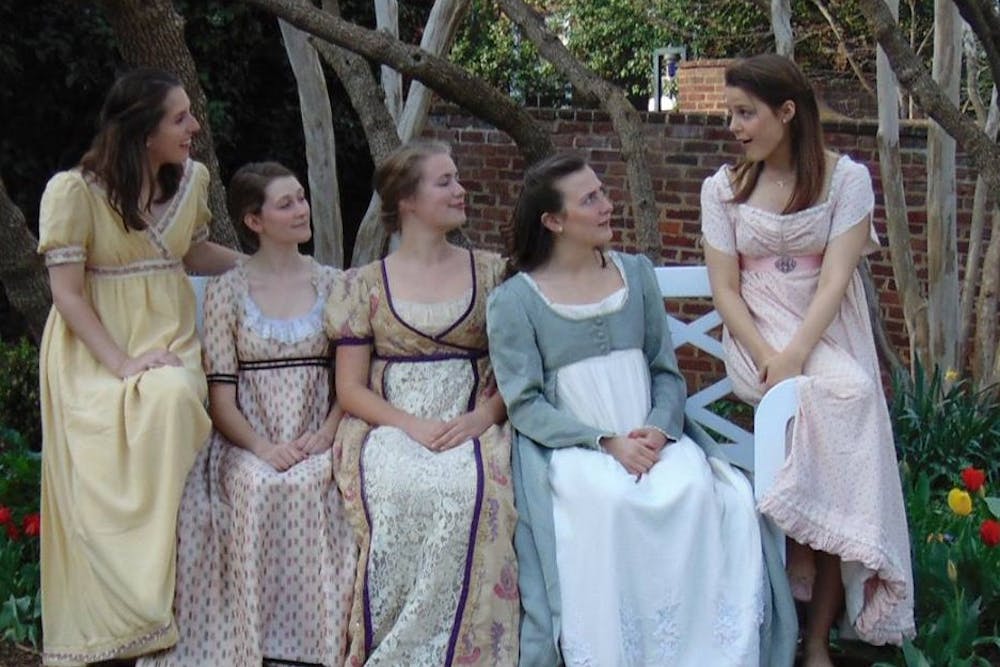Spectrum Theatre transported audience members to early 19th-century England Sunday evening with an awe-inspiring performance of “Pride & Prejudice” in the Newcomb Ballroom. Based on Jane Austen’s acclaimed novel of the same name, the play traced the life of Elizabeth Bennet — a headstrong British heroine navigating societal issues like class, education and marriage.
The show, which spanned over the course of two weekends from mid- to late April, was an entirely student-run production. The event marked the directorial debut of third-year College Student Mimi Robinson, and a team of assistant directors, music directors, choreographers and stage managers collaborated to create a convincing portrait of early-1800s England. A string quartet comprised of two violins, a viola and a cello also contributed to the ambiance, layering classical music under the performers’ dialogue.
The diverse cast ranged across a wide span of majors, class years and levels of acting experience. For some, the show was their first-ever production at the University. For others, it was a continuation of a decorated collegiate acting career. Regardless of the extent of their experience, however, each actor delivered an impressive performance — topped off with a polished British accent.
The play’s two central figures — Elizabeth Bennet and her love-interest Mr. Fitzwilliam Darcy — were played by third-year College student Lydia Flock and fourth-year Engineering student Noah Sauber. Although the show lasted over two hours, the two lead actors never faltered — they traversed the stage and delivered their lines with confidence, control and expression.
Almost every performance of the show took place in the gardens of Pavilion VIII, amidst the stunning spring foliage. However, the final show was moved indoors due to impending weather. The performers handled the relocation with tremendous poise and professionalism. Although Sunday evening’s audience members did not get to witness Bennet and Darcy kiss under the soft light of sunset, Newcomb Ballroom certainly came alive in its own way. The venue’s white walls and hardwood floors were transformed into sprawling ballrooms and sweeping British estates seamlessly.
In the program’s Director’s Notes, Robinson commented on the show’s enduring message — encouraging audience members to extrapolate the story’s events to inform their own lives.
“At its core, this story addresses the importance of overcoming damaging judgments [and] of championing our own dignity in the face of harsh social restrictions,” Robinson wrote.
Spectrum Theatre’s performance of “Pride & Prejudice” highlighted the merit in “choosing love over derision” — giving each audience member a meaningful takeaway to apply to modern America.







